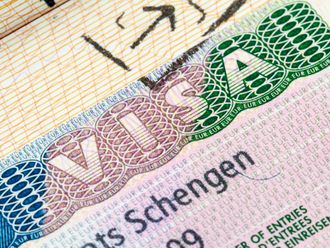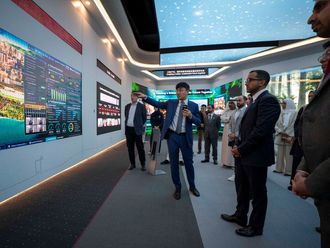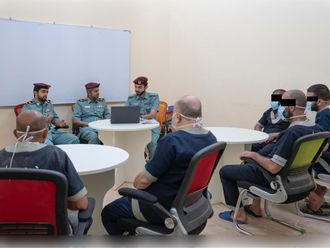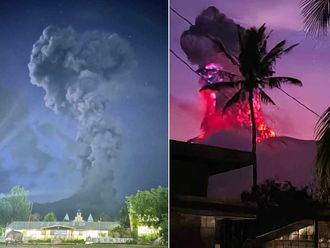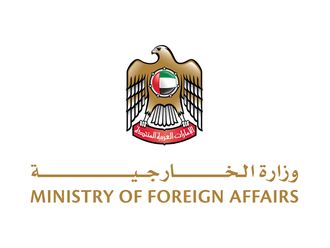
Dubai: Many Filipinos and other expatriates across the UAE burned phone lines and spent Christmas glued to computer monitors and iPads to convey season's greetings to their loved ones back home.
Among them was George Bravo, a logistics officer who has been in Dubai for three years.
On Christmas Eve, George sat quietly while his daughter led prayers. The family of four was ready to partake of Noche Buena, a Filipino tradition where a sumptuous meal is shared by family members, only an LCD screen separated them from each other as they were having dinner via Skype.
"I prepared my own dinner, and they did the same thing so we could all eat at the same time," Bravo, 48, told Gulf News. "I want them to feel my presence even if I am not there physically. When I see them, even just through Skype, I feel less homesick," Bravo said.
To make up for his absence, Bravo said he still participated in their gift-giving tradition. "My wife bought the gift for my secret Santa. And my daughter gave me a rosary as a present but she had to open it for me," Bravo said, his voice breaking.
Bravo said he tries to make every Christmas special despite his distance from his family. On other aspects such as his children's education, he keeps himself abreast with his children's progress by browsing through their school website.
Social costs
These social costs of migration have plagued Filipino homes since the state-sponsored labour export scheme began in the late '70s. At present, around ten per cent of the Philippine population works abroad.
But Bravo remains positive. "My uncle who used to work in Saudi Arabia before would wait for weeks to get his family's recorded messages on cassette tapes through the mail," he said. "Now, because of the internet and modern technology, I can easily monitor what's happening back home and how my kids are growing up."
A three-year study on Filipino families by Dr Mirca Madianou from the UK's University of Cambridge called ‘Mediating migration: polymedia and transnational family communication,' affirmed that new media has helped families maintain long-distance relationships.
"Although new media, understood as an emerging environment of polymedia, cannot solve relationship problems, they do become increasingly integral to the way relationships are enacted and experienced."
Although Bravo longs to be with his family this festive season, he said what they shared over the holidays was enough for now. "I was very happy to see them and I'm really thankful that there's Skype that we could use to connect with our family members on special occasions like this. We spent two hours eating, chatting and laughing together. That for me as a father is a big thing."
It is expected many expatriates will also be using technology to speak to their families on New Year's Eve.


